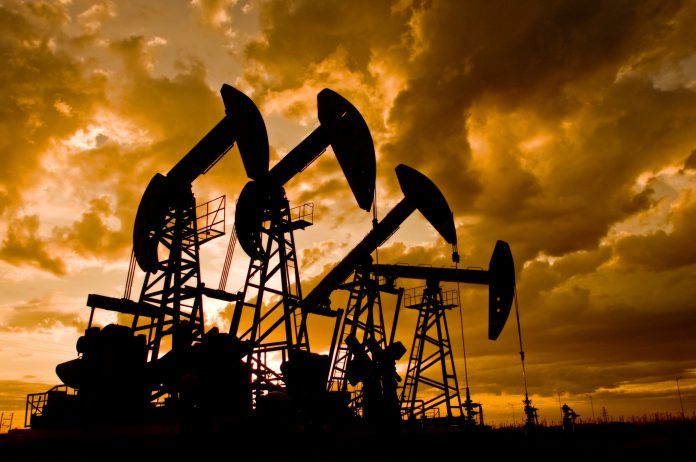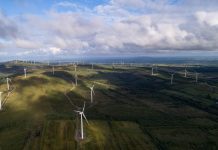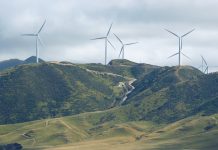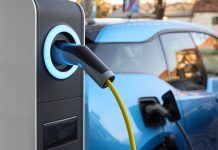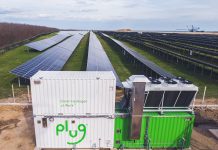Thomas Kattnig, Member of the European Economic and Social Committee, argues that the energy crisis is a catalyst for the energy transition
The EU is supposed to be climate neutral by 2050. The Green Deal aims to reduce greenhouse gas emissions in all relevant sectors: from energy production, via efficiency gains, to reducing consumption in industry, households, transport and agriculture and strengthening environmental protection. Despite the ongoing COVID pandemic and the worsening energy crisis, we must not lose sight of the climate crisis.
To achieve these ambitious objectives, it is important to ensure that all environmental transition actions are socially fair and equitable in the interest of a just transition. Energy renovations must not jeopardise the affordability of the housing. A two-tier energy society must be avoided at all costs.
The energy transition will, therefore, play a crucial role in the fight against climate change and is central to people’s lives and to the EU economy. In addition to developing renewable energies and increasing energy efficiency, action must be taken to combat energy poverty.
Massive increase in energy prices
However, we are currently experiencing a massive increase in energy prices, putting a particularly heavy burden on low-income households as petrol and gas are becoming extremely expensive. At the same time, the economy is also under severe pressure. This creates uncertainty for people.
A more detailed analysis shows that the massive rise in energy prices is mainly due to rapidly increasing global demand for gas and has been further exacerbated by a shortage of supply to the EU and a lack of investment due to austerity policies following the financial and economic crisis. It is noteworthy that the Emissions Trading System (ETS) has had only a very limited effect on price rises.
Russia’s war of aggression on Ukraine has further aggravated the situation on the energy market. In addition to the unimaginable human suffering it is causing, the conflict in Ukraine clearly shows how dependent EU Member States are on imports of fossil fuels – all the more so when certain countries, such as Russia in this case, use this dependency as a geopolitical weapon.
It is particularly regrettable that not only have the EESC’s calls in recent years for a reduction in strategic dependency on third parties gone unheard, but on the contrary this dependency has increased further. The current energy price crisis would not be hitting European citizens and companies anywhere near as hard if Europe were not so highly dependent on imports of fossil fuels from Russia. As a result, European businesses and consumers are suffering.
Transforming the European energy sector
The process of transforming the European energy sector, therefore, needs to be pushed forward as quickly and efficiently as possible, which will entail significant investment in sustainable zero- and low- carbon energy sources. This underlines the need to maximise efforts to increase the share of renewable energy, which could lead to lower prices and will certainly increase the EU’s energy autonomy.
The increase in energy prices prompted the European Commission to issue a toolbox for action and support to help vulnerable groups. And in response to the Russian invasion of Ukraine, the Commission proposed the REPowerEU plan, which aims to make the EU independent of Russian fossil fuels well before 2030.
These two initiatives are steps in the right direction, as they include short-term solutions in line with the objectives of the Green Deal and the European Energy Union: increasing green energy production, diversifying supply and reducing demand. The aim is to accelerate the production of gas from renewable sources and to use it to replace gas for heating and electricity generation. These measures together are intended to reduce the EU’s demand for Russian gas by two-thirds by the end of 2022.
This plan must be supported, but we must not lose sight of the fact that it will be a huge challenge for the European economy and society. This entails huge efforts and requires diversification, firstly, and primarily in the short term, via LNG and biomethane, and secondly via energy efficiency and the expansion of renewables.
Particularly in times of crisis, it is necessary to keep overall objectives in mind instead of only trying to solve the most urgent problems. The EU thus needs to consistently adhere to the basic objectives of its energy policy and energy systems: security of supply, reasonable costs and prices, and carbon-neutrality.
A versatile energy production palette, could be a catalyst for the energy transition
A versatile energy production palette is part of the security of energy supply. In addition to wind and solar power, it is thus important to make use of the wide variety of low-carbon energy sources that fit economically and ecologically within an energy system that is primarily based on wind and solar energy. These include, for example, bioenergy, hydro and geothermal energy.
The Commission’s offer to coordinate gas storage replenishment, e.g., through joint procurement, collection of orders and coordination of deliveries, is an interesting one. The question of ownership of gas storage facilities, which are to a large extent privately owned by groups such as Gazprom or Lukoil, also needs to be addressed in order to achieve greater independence.
However, this also means that a financial instrument will be needed to support investment in hydrogen- friendly infrastructure such as interconnectors and storage facilities. Plans must also be drawn up for individual Member States, taking into consideration the size of the storage facilities, the country’s consumption and the capacities of the storage to serve other countries in the region, to avoid unbalanced burden sharing on a regional dimension.
It is particularly important that, in the aforementioned documents, the Commission provides the Member States with tools to combat energy and mobility poverty. It confirms that, in the current exceptional circumstances, Member States can set regulated prices for disadvantaged consumers, households and micro- enterprises; it also confirms that Member States may adopt temporary tax measures on windfall profits.
Energy suppliers as key players
High energy prices lead to high profits for many oil companies, as well as some energy suppliers and traders. The International Energy Agency estimates these “windfall profits” in the EU at around €200 billion and proposes that these profits be skimmed off by means of taxes and redistributed as financial compensation to energy consumers, such as vulnerable households and energy-intensive companies, and used for the expansion of renewable energy production and the necessary grid infrastructure.
The important role of energy suppliers as key players in the availability of services of general interest should be highlighted. It is also clear that the reshaping of the energy market over the last 20 years has left the Member States with fewer policy instruments at their disposal to deal with rising energy costs. The current design of the energy market seems to prevent an adequate response to price fluctuations. The European Commission, therefore, needs to come up with a proposal that will offer an effective response to these shortcomings and do justice to the green transition. There is also a need for improvements in the transmission and distribution system and a more developed storage infrastructure.
European Commission energy policy
It is worth highlighting the Commission’s statement that action related to rising energy prices must not undermine climate protection efforts. To ensure that no one is left behind, the new Social Climate Fund is intended to support investment in energy efficiency and provide financial support to vulnerable households and small businesses.
The package of measures could be a good step forward because it cannot be a question of choosing between climate protection and social peace; we need both, and we must get the people behind us.
The danger of not taking the population along with us in the course of European climate policy and a flare-up of widespread protests, such as the” yellow vests” protests, must be prevented at all costs. There is, therefore, a need for further-reaching accompanying measures and resources at the EU and national levels. The Member States now need to exploit the synergies of the Social Climate Fund with other available financial resources and to use it as efficiently as possible.
Responding to high energy prices
Responding to recent exceptionally volatile and high energy prices, the European Commission in May 2022 set out several extra short-term measures to combat energy prices and look at possible supply disruptions from Russia. Also, it shows areas where electricity market design can be optimised, making it ready for the move away from fossil fuels and more resilient to price shocks, while also delivering affordable electricity and protecting consumers.
Commissioner for Energy, Kadri Simson, provided more details on this important policy announcement, which is an example of what the European Commission are doing to address energy prices: “The EU has put in place a well-functioning and interconnected energy market that continues to provide reliable energy supply in today’s challenging situation. But exceptional times require exceptional measures and today we present additional steps that the Member States can take to combat the high prices.
“As Russia pursues its unprovoked war in Ukraine, we must also plan for gas supply disruptions and their impact with solidarity measures and possible price interventions. In parallel, we are taking forward the work to improve the electricity market to better protect consumers, reduce volatility and continue to support the green transition.” (1)
1. https://ec.europa.eu/commission/presscorner/detail/en/IP_22_3140
Contributor Details
Editor's Recommended Articles
-
Must Read >> 88% of Europeans want more renewable energy

